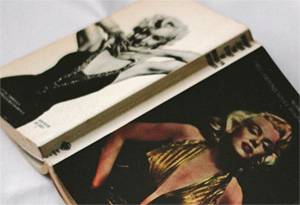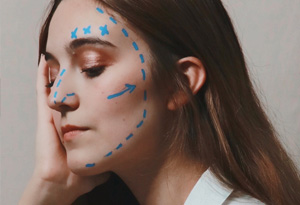Think
In line with one of the themes that mark the month of March, Claudia Arocena, student of Degree in language and Spanish Literature, addresses the role of women in society. She also poses a reflection on the conception of feminine beauty that has marked the last decades.
Women, beauty and society
If rule Jean, popularly known as Marilyn Monroe, had been born in the 21st century, I would venture to say that she would not be the beauty icon she was in the 1950s and still is today. The image of this woman is iconic, hugely recognizable and her physique infinitely acclaimed; this was, indisputably, the feature that cemented her degree program. Such a beauty that she became the desire and envy of several generations. However, that blonde and voluptuous woman who revolutionized the world has nothing to do with the current concept of beauty. Even so, the power of feminine beauty has not changed.
 How much power does beauty have? What role does it play in the female gender?
How much power does beauty have? What role does it play in the female gender?
Before answering these questions, it is appropriate to first make a small reflection on this concept. What is beauty? Human beings have been trying to answer this question for millennia without success, because human nature leads us to feel attracted to beautiful things. It causes us a strange sensation of fullness, a form of immaterial pleasure attainable through the senses, which can be a transcendental or even an intellectual experience. Beauty as a concept is difficult to define, it can be many things, it can be a landscape, a flower, a painting or a philosophical concept. The conception of beauty is totally unique for each individual. However, we can perceive and admit when something is indisputably beautiful, because this conception is also linked to society and the values that govern it. What is beautiful and what is not beautiful; the criterion is partially linked to time, the era and the worldview of a community.
Despite the changing meaning of beauty, women and femininity have always seemed to be linked to it, to a greater or lesser extent depending on the era. The beauty of women has had incalculable power since ancient times. From Helen of Troy, who caused the destruction of a city, to Marilyn Monroe, Liz Taylor, or Sophia Loren, who revolutionized the concept of beauty for generations.
But how is feminine beauty different from any other? Women innately reflect the nature of the world; they are part of it, they are linked to a great work. Mountains, valleys and rivers are seen in the curves and shapes of a woman. Women, by nature, creators and givers of life, are connected to the world in a totally ancestral way, for, like nature, they are generators of life. This force of nature, wild and untamed, that lives inside all women, differentiates them from any other creature; perhaps this is what endows the female sex with that innate, incomprehensible and transforming quality.
 However, this gift of beauty, due to the evolution of our society, has become a double-edged sword. The 21st century, with its technology and novelties, has brought with it a concept and canon of beauty very different from any other that existed in a time before ours. A beauty canon that escapes from reality. It hides behind filters, masterfully used makeup, hyaluronic acid and the scalpel. Social networks and the media have become a constant bombardment of unattainable beauty. There is no denying that there is beauty in these images, and yet it is far removed from the natural, generating insecurities and complexes that hurt the self-esteem of precious women, who seek beauty where it already exists. For in every woman lives a special flame, a unique beauty, a beauty in the form of power.
However, this gift of beauty, due to the evolution of our society, has become a double-edged sword. The 21st century, with its technology and novelties, has brought with it a concept and canon of beauty very different from any other that existed in a time before ours. A beauty canon that escapes from reality. It hides behind filters, masterfully used makeup, hyaluronic acid and the scalpel. Social networks and the media have become a constant bombardment of unattainable beauty. There is no denying that there is beauty in these images, and yet it is far removed from the natural, generating insecurities and complexes that hurt the self-esteem of precious women, who seek beauty where it already exists. For in every woman lives a special flame, a unique beauty, a beauty in the form of power.
Beauty, that feeling that seems unattainable and intangible, moves the world. It moves us women, it lives inside us. The power it gives us is capable of changing the world and shaping it; but, perhaps, in order to achieve it, to be able to generate a change, it is necessary to make a transformation from the foundations, for which we have to question what beauty really means and the role it has in our life and society.
Therefore, the question we ask this month is the following: do you think there has been a female renaissance?
If you liked the article, you might be interested in one of our Degrees!









